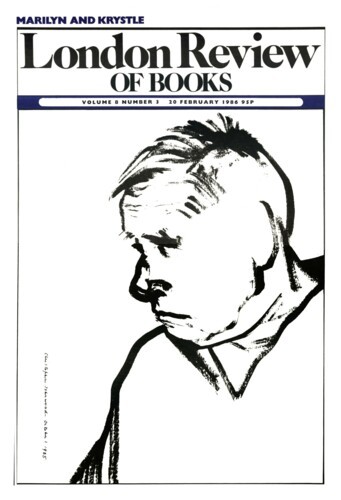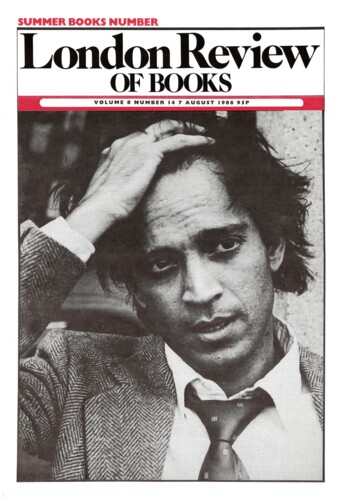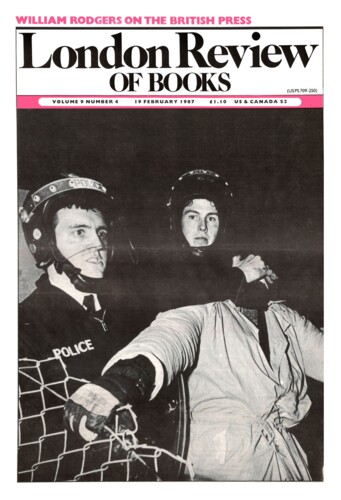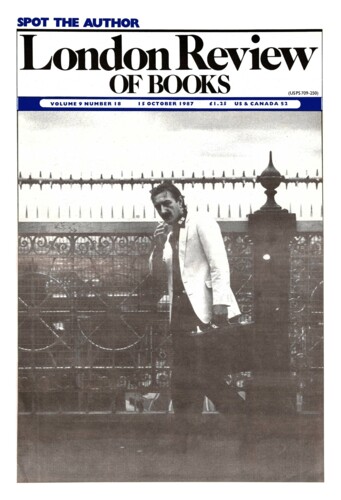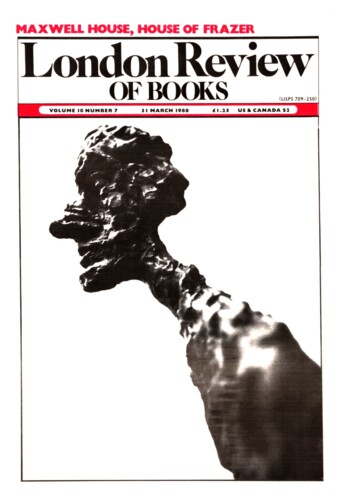Jamboree
John Sturrock, 20 February 1986
Roman Jakobson and Mikhail Bakhtin agree on so little as theorists of literature that they must count as alternatives. To read one and then the other, preferably Jakobson first and then Bakhtin, as a sort of anti-Jakobson, is a literary theoretical education. Where Jakobson is dry, Bakhtin is convivial; where Jakobson is technocratic, Bakhtin is impulsive; where Jakobson is magisterial, Bakhtin is a groundling. Jakobson’s theories are known about, because he came to the West to work on them; Bakhtin’s we are only now starting to learn about, because of the shocking obscurity in which they were kept in his lifetime.
